
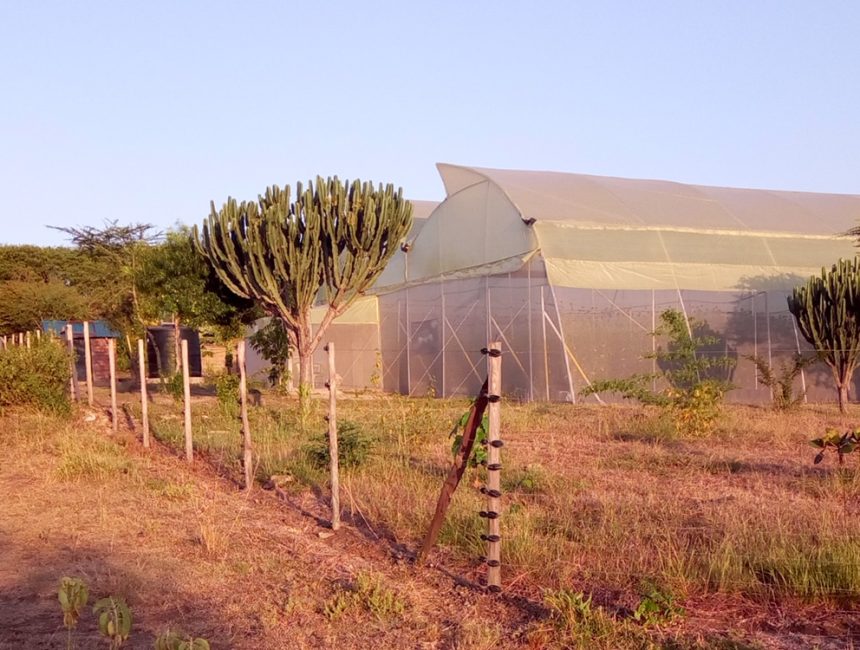
Imagine you are a seedling in the hands of Kenya-based AutoPot farmer Nam Oneko and prepare to be staggered. Because this year Nam is starting his crops at intervals with the divine intention of reaping a continual, year-round harvest, and in just his second year as a farmer, it’s literally staggering. Now cease imagining yourself as a plant and read on.
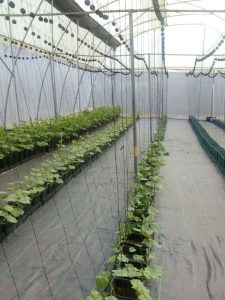
Nam and AutoPot Watering Systems are working together towards a blueprint for sustainable growing in one of the harshest growing environments in the world. Horticulture, however, was not Nam’s natural milieu until two years ago. The micro-bytes and mega-chips of his computer engineering background could scarcely be further removed from his current occupation. You’re not supposed to put water anywhere near a computer, much less nutrients. Nevertheless his debut growing season of 2016-17 produced not only sensational results but also garnered widespread interest in AutoPot Watering Systems from local farmers to high-ranking government officials alike.
In the interests of gathering as much experience and insight as possible Nam is ringing significant changes this time around. Having knocked tomatoes into a cocked hat with a bumper harvest last year a switch in crop focus was deemed due. For 2018-19 scarcely could there be a more refreshing harvest in the offing. 200 Israeli Galia Sweet Melons are being planted every week and 150 English cucumber seedlings committed to the earth every month. An impressive seven weeks of melon sowing have now passed, vastly preferable to seven weeks of sewing with melons, whatever that is.
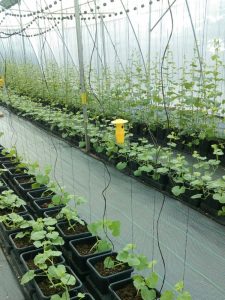
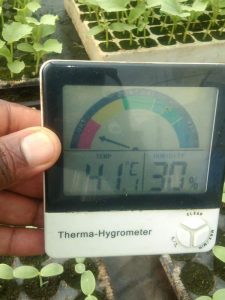
Nam will continue to use a high performing substrate of 50:50 coco peat and pumice but on the basis of last season’s experiences will reduce the EC to an average of 1.5 from 1.8 and will look to slightly increase pruning.
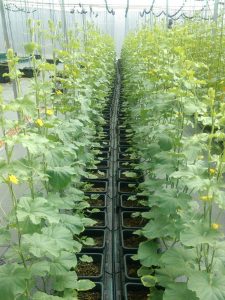
Also new, and already deployed to great effect, is a pure organic insecticide. Until recently whiteflies had been periodically turning the greenhouse into their private Lovers Lane, courting on the plants, wandering around doe-eyed on the leaves, forming loving relationships and procreating all over the shop, then letting their naughty offspring drain leaves of their sap. Nam has gone biological upon their abdomina using spores of Lecanicillium Lecanii strain J27 (available under the trade name LECATECH) which has controlled the sucking, copulating, pestilence very well indeed.
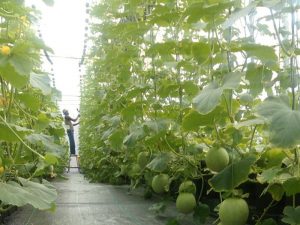
The potential for this project is immense. Though Nam is based in an important horticultural area within Kenya, and though local fruit and veg production is relatively abundant, demand for Nam’s crops far outstrips his current capacity to supply. By staggering his crop Nam can practise his technique of creating a constant supply, generating valuable experience that both he and we can pass onto other growers in similar climes. Staggering crops will inevitably require more hands to maintain the plants. Together with these hands will come two new members of staff who are due to start at the end of July, surely a great relief to Nam, his current helper and those who aren’t keen on disembodied hands tending plants. In order to increase overall capacity, however, a new, additional greenhouse is required. No doubt this is why Nam has ordered one. The new greenhouse is tantalisingly described as “different from traditional designs” but that is all you are getting on that for now.
| Monday | 9AM-5PM |
| Tuesday | 9AM-5PM |
| Wednesday | 9AM-5PM |
| Thursday | 9AM-5PM |
| Friday | 9AM-5PM |
| Saturday | Closed |
| Sunday | Closed |